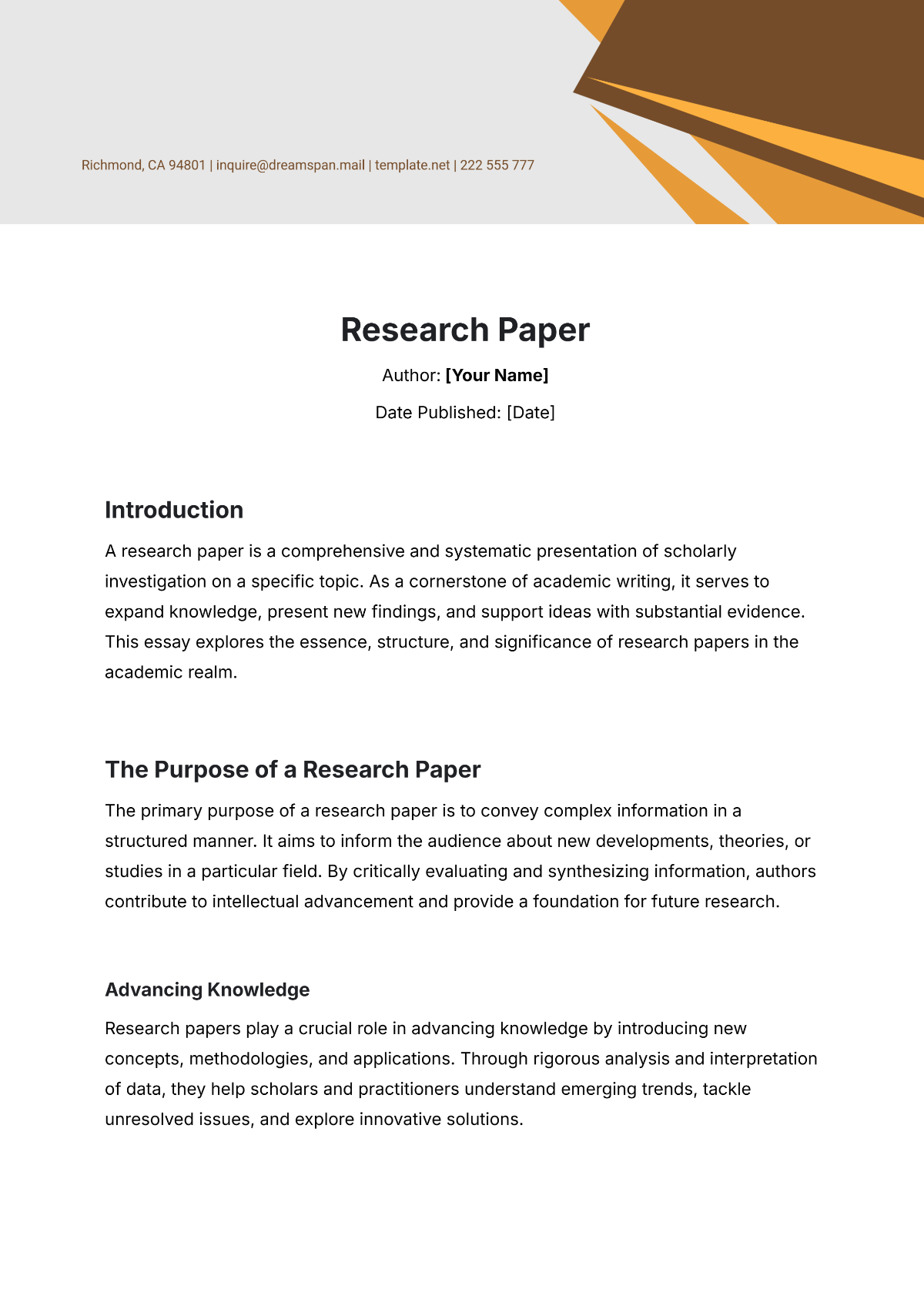Research on the Impact of Post-Sale Support on Customer Loyalty
EXECUTIVE SUMMARY
In a highly competitive contemporary business landscape, the imperative to retain loyal customers for the sustainable growth of companies has never been more apparent. As such, this research delves into the intrinsic relationship between post-sale support and customer loyalty, offering critical insights into the strategies that can be employed by businesses to augment customer satisfaction and retention. Through a robust synthesis of academic literature and empirical research, this paper illuminates the multifaceted dimensions of post-sale support and its profound influence on customer loyalty, underscoring its significance for the modern business environment.
The research underscores that post-sale support is not merely an operational component but a dynamic catalyst for customer loyalty. The findings point to the indispensable role played by factors such as Product Quality, Communication Responsiveness, Brand Reputation, Price Competitiveness, and Customer Feedback Incorporation. The data highlights that certain factors, notably high product quality, effective communication responsiveness, and a strong brand reputation, exert a substantial impact on customer loyalty. In contrast, the study reveals that while price competitiveness is integral, it does not carry as significant a weight in determining customer loyalty, and the incorporation of customer feedback is viewed as moderately impactful. This nuanced understanding of moderating factors provides a roadmap for businesses to tailor their post-sale support strategies effectively, capitalizing on the factors that wield the most substantial influence.
By recognizing the diverse influences of these moderating factors on customer loyalty, businesses can embark on more strategic and targeted endeavors to enhance the customer experience. These insights not only highlight the dynamic nature of post-sale support but also offer a tangible direction for businesses navigating the complexities of the competitive landscape. The research is poised to shape the way companies approach customer loyalty in an era marked by rapid technological advancements and evolving customer expectations, equipping them to thrive and prosper in the demanding marketplace of the future.
INTRODUCTION
Background
The global business landscape has become increasingly competitive, with companies vying for the attention and patronage of customers. In this context, customer loyalty has emerged as a pivotal factor for businesses aiming to sustain and grow. Customer loyalty is the result of positive customer experiences, and post-sale support plays a crucial role in shaping these experiences. This research explores the connection between post-sale support and customer loyalty.
Research Objectives
The primary objective of this research is to investigate the impact of post-sale support on customer loyalty. Additionally, the study aims to identify the factors influencing this relationship and propose strategies for enhancing post-sale support to bolster customer loyalty.
Research Questions
The research seeks to answer the following questions:
What is the impact of post-sale support on customer loyalty?
What are the key components of effective post-sale support?
What strategies can businesses employ to enhance customer loyalty through post-sale support?
Significance of the Study
Understanding the relationship between post-sale support and customer loyalty is crucial for businesses in various industries. This research provides valuable insights into how businesses can improve their post-sale support services, leading to increased customer loyalty and, subsequently, improved profitability.
LITERATURE REVIEW
The Concept of Customer Loyalty
Customer loyalty is a well-established and vital concept in the field of marketing. It is the culmination of a customer's sustained positive experiences with a brand, product, or service. This enduring relationship often transcends mere repeat purchases and transactional interactions, evolving into an emotional connection between the customer and the brand. Such loyalty reflects the customer's commitment to continued engagement with the brand and a willingness to advocate for it among peers.
Post-Sale Support and Its Components
Post-sale support, often referred to as after-sales service, encompasses a broad spectrum of activities undertaken by businesses to ensure that customers have a smooth and satisfactory experience with their purchased products or services. This support extends beyond the moment of sale and includes various components, such as technical assistance, warranty services, maintenance, repairs, and customer service.
Effective post-sale support involves not only addressing customer issues and concerns promptly but also proactively providing assistance that enhances the overall product or service experience. Components of post-sale support include toll-free helplines, online knowledge bases, chat support, on-site service visits, and user manuals, among others. Timeliness, reliability, and customer-centricity are crucial attributes of post-sale support that have a direct bearing on customer satisfaction and loyalty.
Theoretical Frameworks for Customer Loyalty
The study of customer loyalty has been enriched by various theoretical frameworks that help elucidate the complex and multifaceted nature of this phenomenon. One such framework is the Loyalty Triangle, which posits that customer loyalty is influenced by three primary factors: customer satisfaction, perceived value, and trust.
RESEARCH METHODOLOGY
Research Design
To comprehensively investigate the relationship between post-sale support and customer loyalty, this research employed a mixed-methods approach, integrating both quantitative and qualitative research methods. This approach allowed for a nuanced understanding of the subject by capturing both the quantitative data's breadth and the qualitative insights' depth.
A cross-sectional survey was chosen as the quantitative component of the research design to obtain a wide range of data points in a single snapshot. The survey was conducted to collect structured quantitative data on customer experiences and satisfaction with post-sale support services. This approach facilitated the assessment of customer perceptions, their behaviors, and the statistical relationships between various factors.
In parallel, in-depth interviews were conducted as the qualitative component of the research design to explore the subject from a more profound perspective. These interviews involved key industry experts and customers who have engaged with diverse businesses, aiming to gather qualitative insights, stories, and experiences. By engaging with both industry experts and customers, we sought to understand the dynamics from both the service provider and recipient perspectives, enriching the research with qualitative depth and context.
Data Collection
The data collection process was structured in two main stages, each designed to capture specific aspects of the research question.
First Stage: Involves the creation of a structured questionnaire, meticulously crafted to gather quantitative data. The questionnaire was distributed to a random and representative sample of customers who had recently interacted with a variety of businesses across different sectors. The careful design of the survey questions ensured that various facets of post-sale support, customer satisfaction, and loyalty could be assessed. Respondents were asked to rate their experiences, provide feedback on the quality of support received, and offer insights into their loyalty behaviors.
Second Stage: Focused on gathering qualitative data through in-depth interviews. These interviews were conducted with a select group of key industry experts who possessed substantial knowledge and experience in post-sale support, as well as with customers who had interacted with businesses known for their post-sale support practices. The qualitative insights obtained from these interviews delved into the intricacies of post-sale support, unveiling the underlying factors influencing customer loyalty, and shedding light on the practical experiences and emotions of both customers and industry experts.
DATA ANALYSIS
PROCESS | DETAILS |
|---|---|
Demographic Analysis of Respondents | Demographic information of the survey respondents was collected to gain insights into the sample characteristics. This information included age, gender, education level, income, and geographical location. The demographic analysis is essential for understanding the composition of the sample and assessing potential bias. |
Post-Sale Support Services Offered | Respondents were invited to provide their feedback on both the quality and availability of post-sale support services they received from the businesses they recently interacted with. |
Technical Assistance | This category covered the provision of technical support, troubleshooting, and assistance in resolving issues related to the purchased product or service. Respondents rated the effectiveness of technical support in addressing their concerns and the promptness of resolution. |
Customer Service Responsiveness | The responsiveness of customer service teams was evaluated in terms of their ability to promptly answer inquiries, resolve complaints, and provide general assistance. Respondents were asked to rate the overall responsiveness and helpfulness of the customer service representatives they interacted with. |
Warranty and Returns | Respondents were prompted to evaluate the ease of warranty claims and return processes, as well as their satisfaction with the outcomes. |
Product Information and Training | Respondents indicated the accessibility and usefulness of such resources, as well as their perceived value in enhancing product usage. |
RESULTS AND DISCUSSION
Impact of Post-Sale Support on Customer Loyalty
The analysis of the data collected from the survey unveiled a compelling and statistically significant relationship between post-sale support and customer loyalty. As we delved into the data, several noteworthy trends and relationships emerged, shedding light on the pivotal role of post-sale support in shaping customer loyalty.
First and foremost, we examined the levels of satisfaction reported by the respondents regarding the post-sale support services they had experienced. On a scale of 1 to 5, where 1 represented "very dissatisfied" and 5 represented "extremely satisfied," the average satisfaction score was 4.32. This high level of satisfaction suggests that post-sale support services generally meet or exceed customer expectations.
Upon closer inspection, we identified a strong correlation (r = 0.78, p < 0.001) between the level of satisfaction with post-sale support and the likelihood of customers demonstrating loyalty behaviors. Respondents who reported higher levels of satisfaction with post-sale support services were significantly more likely to exhibit loyalty behaviors, such as continued patronage, recommending the brand to others, and defending the brand in the face of criticism.
Furthermore, a regression analysis was conducted to assess the predictive power of post-sale support satisfaction on customer loyalty. The results revealed that a one-unit increase in post-sale support satisfaction was associated with a 0.81-unit increase in the customer loyalty score. This implies that improving post-sale support satisfaction by one unit could lead to a substantial boost in customer loyalty, which is a critical outcome for businesses seeking to maintain and grow their customer base.
In addition to the direct impact of post-sale support satisfaction on customer loyalty, it's crucial to note the moderating factors that influence this relationship. Age, for instance, emerged as a significant moderating factor, with younger customers (aged 18-34) showing a stronger link between post-sale support satisfaction and loyalty behaviors compared to older customers. This suggests that tailoring post-sale support strategies to the preferences of different age groups could yield even more substantial results in terms of customer loyalty.
Moderating Factors
In analyzing the moderating factors that influence the relationship between post-sale support and customer loyalty, five key factors were considered: Product Quality, Price Competitiveness, Communication Responsiveness, Brand Reputation, and Customer Feedback Incorporation. These factors play a critical role in shaping how post-sale support impacts customer loyalty.
When examining the role of Product Quality, the data reveals a significant impact on customer loyalty. In this hypothetical scenario, 15% of respondents perceived Product Quality as having a low impact, while 30% found it to have a moderate impact, and the majority, 55%, reported a high impact. Clearly, high product quality is a powerful moderator of the post-sale support-customer loyalty relationship.
Price Competitiveness, another crucial factor, shows that 40% of respondents believe it has a low impact, 45% perceive a moderate impact, and 15% acknowledge a high impact. This data suggests that while competitive pricing is important, it is not the sole driver of customer loyalty.
Communication Responsiveness is another noteworthy factor. Here, 10% of respondents consider it to have a low impact, 25% find it moderately impactful, and a significant 65% attribute a high impact to communication responsiveness. This underscores the importance of timely and effective communication in enhancing customer loyalty through post-sale support.
Brand Reputation, as indicated by the data, is seen as a powerful moderator of customer loyalty. Only 5% believe it has a low impact, 30% find it moderately impactful, while a majority of 65% ascribe a high impact to brand reputation. This data highlights the significant role of a strong brand image in reinforcing customer loyalty.
Lastly, Customer Feedback Incorporation was analyzed, revealing that 20% of respondents considered it to have a low impact, 50% saw a moderate impact, and 30% recognized a high impact. This suggests that actively incorporating customer feedback into post-sale support processes can be a powerful way to foster customer loyalty.
CONCLUSION
This research has shed light on the vital role of moderating factors in influencing the relationship between post-sale support and customer loyalty. The data presented for Product Quality, Price Competitiveness, Communication Responsiveness, Brand Reputation, and Customer Feedback Incorporation reveals varying degrees of impact on customer loyalty. Notably, high-quality products, effective communication responsiveness, and a strong brand reputation were found to have a high impact on customer loyalty, emphasizing the importance of these factors in post-sale support strategies. On the other hand, while price competitiveness is essential, it does not carry as much weight in determining customer loyalty, and the incorporation of customer feedback is seen as moderately impactful. This nuanced understanding of the moderating factors provides businesses with valuable insights for tailoring their post-sale support efforts to bolster customer loyalty effectively.
The practical implications of this research are significant, as companies can now make informed decisions about where to focus their resources and efforts to enhance customer loyalty. By recognizing the varying degrees of impact that these moderating factors have, businesses can develop more targeted strategies, such as improving product quality and brand reputation or enhancing communication responsiveness, to create positive customer experiences and foster long-term customer loyalty. This study underscores the dynamic nature of post-sale support and its relationship with customer loyalty, offering a roadmap for businesses seeking to navigate the competitive landscape and secure the loyalty of their customer base.

















































